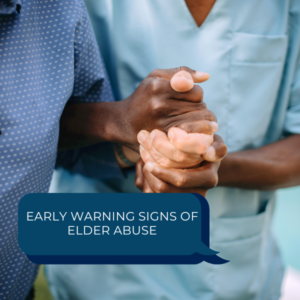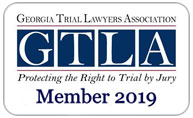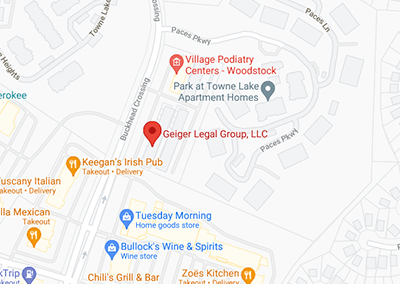Early Warning Signs of Elder Abuse

Identifying the early warning signs of elder abuse can be critical to protecting your vulnerable loved one. Still, it can also be difficult due to the number of forms such abuse can take. However, by understanding the signs of elder abuse, you can remain vigilant and ensure they receive the appropriate medical care and legal support they need.
Understanding Elder Abuse
What is elder abuse? It is the mistreatment or exploitation of a person aged 60 or older at the hands of those who live with them, care for them, or with whom they have daily contact. Elder abuse is not confined to nursing homes or care facilities: the American Psychological Association reports that one in 10 people aged 60 or older who live at home experience elder abuse. Often, the caregiver’s personal problems – whether stress, addiction, or mental illness – can lead to the abuse of a loved one in their care.
In a nursing home context, abuse often takes the form of staff and caretakers berating residents, ignoring them, or physically harming them. In other cases, residents receive inadequate care from improperly trained staff, resulting in medical emergencies.
Physical Warning Signs
Be alert for the physical warning signs of elder abuse. Unusual injuries, including broken bones, burns, and bruises, should raise a red flag that your loved one is experiencing physical abuse. Other signs include:
- Bed sores
- Infections
- Dehydration
- Malnourishment
Emotional and Behavioral Indicators
You know your loved one best, so unusual depression, agitation, or anxiety may indicate that they are being verbally or emotionally abused. Reluctance to see any visitors or fear of caregivers are common signs of ongoing abuse.
Financial Anomalies
Older adults are often the targets of theft and fraud because they have had a lifetime to save and are often less able to detect manipulation. Signs of elder financial abuse include:
- Changes in banking habits, including sudden withdrawals
- New names added to accounts or bank signature cards
- Increased and unexplained ATM activity
How to Respond When You Suspect Abuse
If you suspect your elderly loved one has been subjected to abuse, follow these tips to protect them from further harm:
- Seek emergency medical help – If your loved one is in immediate danger or suffering an emergency health crisis, call 911.
- Voice your concerns – Talk to your loved one directly and try to determine whether they are suffering from abuse.
- Create a file – Collect any available financial and medical records. Document any injuries and keep notes about your conversations with your loved one.
- Alert the authorities – Every state has an agency or department tasked with safeguarding elderly residents from abuse. Georgia’s Department of Community Health investigates allegations of abuse, neglect, and exploitation.
- Contact an elder abuse lawyer – The elder abuse attorneys at Geiger Legal Group, LLC are proud to demand accountability on behalf of abuse victims and their families. With a knowledgeable, compassionate legal advocate on your side, you can end the abuse and demand compensation for what your loved one suffered.
Contact our Elder Abuse Attorneys to Learn More
If you believe your loved one has suffered elder abuse, you need an experienced elder abuse lawyer to protect them and fight for justice. At Geiger Legal Group, LLC, we are prepared to handle all aspects of your case as we safeguard your loved one’s legal rights and seek the compensation they deserve. Contact us today for a free consultation with an elder abuse lawyer.














